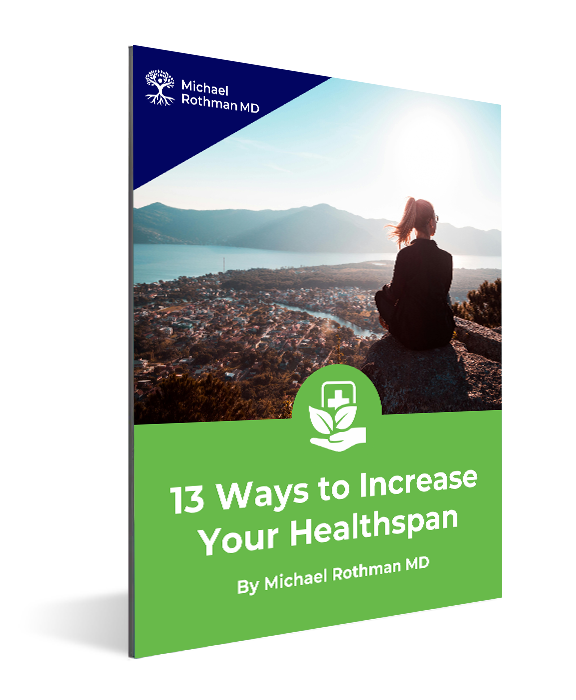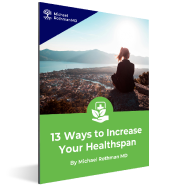For the last 20 years, Michael Rothman MD has been treating patients for conditions related to autonomic dysfunction. Dysautonomia is a term used to describe a condition where your autonomic nervous system is essentially dysfunctioning. Dysautonomia literally means a dysfunctional autonomic nervous system. Every single person, at some point in time, will suffer from varying degrees of dysautonomia, yet this disorder is virtually unknown and unrecognized.
We have an unseen or hidden epidemic of autonomic dysfunction and one way to combat this common, health-sapping condition is to bring awareness to this very common problem. For this reason, Michael Rothman MD will be releasing a series of blogs related to various manifestations of dysautonomia in hopes that patients suffering from these disorders will be armed with more information and follow a healthy path to get to the root cause of their chronic symptoms.
What causes headaches?
Most headaches are caused by excessive blood flow to your brain. These are the steps: inflammation in your body can stimulate your parasympathetic nervous system. This excess parasympathetic nervous system stimulation resulting from this inflammatory process can lead to vasodialation (dilated blood vessels) resulting in too much blood to flow to your brain. This extra blood flow to your brain can significantly contribute to your headache symptoms. Therefore, it is probable that a large part of your headache problems are caused by dysfunction in your autonomic nervous system (dysautonomia).
What causes my Autonomic Nervous System Dysfunction in the first place?
There are a number of triggers that are associated with headaches such as stressful situations, weather changes, allergies, or even foods. When you are in a highly stressful situation or being subjected to chronic stress, this will put a strain on your nervous system and on your adrenal glands. Excessive stress causes your nervous system and your adrenal glands to compensate for this unhealthy stress through various hormonal and nervous system actions. When your body responds to a stressful situation, you will activate your “fight or flight” (sympathetic nervous system) response. This acute stress response is mediated through your nervous system and is almost like hitting the “gas pedal” in your body; accelerating various processes (like your heart rate, blood pressure and the burning of fuel to create energy). However, if this stress is prolonged, the exact opposite reaction can occur, where you stimulate your “rebuild and repair” (parasympathetic nervous system) response. An abundance of parasympathetic activity (rest and repair response) will cause a relaxation and vasodilatation of your blood vessels and is responsible for the severe headache symptoms you are feeling. Your allergy symptoms are also most likely to be apparent when you are suffering from excess stress and autonomic dysfunction (dysautonomia), especially when there is excessive parasympathetic stimulation. The excess parasympathetic tone in your body will cause your immune system to release histamine. But in this viscious cycle, the more histamine your white cells release, the more parasympathetic tone you will have. Therefore, your autonomic nervous system continues to become more and more unbalanced and your allergic and parasympathetic symptoms get worse. And if that isn’t enough, the imbalance of parasympathetic tone will cause your blood vessels to dilate and spur a severe headache in its aftermath.

Start your journey to true well-being:
Can My Diet Make My Headaches Worse?
A self inflicted type of stress, such as the edible variety, can be one of the most important triggers of your headaches. This type of stress is one you have the most control over. A prime example of Edibolic Stress would be as follows: every time you eat something loaded with sugar, or too many carbohydrates, your blood sugar rises. This elevated blood sugar prompts your body in stimulating your parasympathetic nervous system (PNS) to attempt to lower your blood sugar by releasing insulin into your blood stream. And while originally, you didn’t anticipate the consequences that your sugary treat would create, you end up suffering from a massive headache as a result. Regardless of the trigger, whether related to your diet or not, the common denominator is that all these stressful, unhealthy actions lead to excessive parasympathetic tone, an overabundance of blood flow to your brain, and ultimately some sort of headache.
The Name Game
There are so many different types of headaches that you can suffer from and each has its own characteristic signs and symptoms. For example, a cluster headache may wake you up in the middle of the night, comes in bunches (or clusters) and may respond to inhaled oxygen . However, migraine headaches are characterized by intense throbbing or pulsing in one specific area of your head and may be associated with nausea and visual symptoms. Other common headaches include “tension headaches”, “chronic daily headaches” ,“cough headaches”, “hormone headaches”, “medication rebound headaches”, and more. In the end, all of these various distinctions between these headaches are a bit arbitrary and artificial. The reality is that these are just names to various headache patterns that fit some type of clinical definition. Getting caught up in trying to “get the proper diagnosis” for a headache pattern can distract you from answering an important question, “what is causing my headaches in the first place and how can I rectify this situation?”
Ready to Take Control of Your Health?
If you’re ready to prioritize your health and are seeking effective, metabolically directed treatments, contact us online or call (732) 268-7663 for a consultation with Dr. Rothman.
How Can Dr. Rothman Help?
When you come in for a consultation with Dr. Rothman, he will work with you to establish a proper diet to minimize your intake of any inflammatory foods and also to keep your blood sugars stable. Either high or low blood sugars will cause a massive autonomic response as your nervous system tries to compensate for your blood sugar abnormalities. Additionally, it will be important to run a series of metabolic tests to measure your body chemistry balance. There are some very simple, easy and non invasive tests available to measure your autonomic nervous system balance. Also hormonal laboratory testing will be prescribed to measure your levels of various hormones including estrogen, testosterone, progesterone, insulin, cortisol and several thyroid hormone tests. These very common, yet often, unrecognized and unappreciated hormonal problems can contribute to autonomic dysregulation and imbalance and the resulting up regulation of your parasympathetic nervous system which can lead your brain blood vessels to dilate resulting in you experiencing headaches . If you suffer from more than your share of headaches and have been “given a diagnosis” for your headaches, you really owe it to yourself to look for the underlying cause of your headaches. Clearly, the only logical solution to your headache problems is determine the cause of your problem and then undergo a program designed to safely balance out your system. By leveling any imbalance in your body and minimizing your stressors, you can bring balance to your autonomic nervous system and minimize your dysautonomia and your headaches. By working with Dr. Rothman, you will discover a road to significantly reduce chronic or severe headaches in a natural way, holistic, gentle and long lasting way.
Are you suffering from severe headaches and other symptoms of autonomic dysfunction? Schedule a consultation with Dr. Rothman by calling, 732-268-7663 and start improving your health today.











